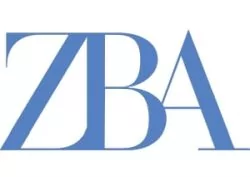- Introduction
A division bench (headed by the Hon'ble Justice G.S.Patel) of the Bombay High Court in World Crest Advisors LLP v. Yes Bank Limited1 (“World Crest Judgment”) refused to restrain Yes Bank (in its capacity as the beneficial owner of the pledged shares) from exercising voting rights in the annual general meeting of Dish TV India Limited (“Dish TV”). Effectively, Yes Bank as the transferee of the pledged shares of World Crest Advisors (“World Crest”) in Dish TV, has all the rights attributed to a beneficial owner of such shares including voting rights pursuant to the recording of Yes Bank's name as the beneficial owner of the pledged shares under Regulation 58(8) of the SEBI (Depositories and Participants) Regulations, 1996, as amended (“Depositories Regulations”). A pledgee of demat shares has to mandatorily record its name as a beneficial owner of demat shares for such pledgee to exercise its rights of sale and enforcement under the Contract Act, 1872 (“Contract Act”). The rights of a beneficial owner are available to a pledgee at all times and even prior to the sale of the pledged shares under section 176 of the Contract Act.
- Brief Facts and Judgment
World Crest pledged its shares in Dish TV to Catalyst Trusteeship Limited, the security trustee of Yes Bank, to secure borrowing to several companies of the Essel Group. Under the pledge deeds and on occurrence of events of default, Catalyst enforced the pledge and subsequently transferred 24.19% of the pledged shares to Yes Bank. Yes Bank being the beneficial owner of the shares asserted its rights in the annual general meeting of Dish TV, which was opposed by World Crest (the pledgor). The arguments by the pledgor was that Yes Bank has no voting rights as the pledged shares are yet to be sold to a third party under section 176 of the Contract Act and unless done, the pledgee cannot claim voting rights or management rights attached to the pledged shares. This is to say, recording of name as a beneficial owner in the depository system does not confer all rights attached to the shares and the requirements of section 176 of the Contract Act must be followed. These arguments were rejected by the Bombay High Court, which ruled that the Depositories Regulations do not provide for any restricted rights to a pledgee.
- Concerns under IBC
Under section 21 of the Insolvency and Bankruptcy Code, 2016 (“IBC”) a financial creditor who is a related party of a corporate debtor loses its right of representation, participation or voting in the committee of creditors. A related party includes a person who controls more than 20% voting rights in the corporate debtor due to ownership or a voting agreement. The interpretation of the World Crest Judgment may lead to a conflict where banks/financial creditors invoke pledge of a corporate debtor and exercise voting rights, but are yet to sell such pledged shares to a third party under the Contract Act. An insolvency professional may take a view that banks/financial institutions exercise voting rights attached to the pledged shares and consequently, are “related parties”, although this should not be the case.
- Conclusion
Undoubtedly, the World Crest Judgment is in line with the Supreme Court's judgment in PTC India and appears to be correct law. This, however, will have to be harmoniously read with the IBC moving forward to ensure that financial creditors are not put at disadvantageous position or with unintended consequences.
Footnotes
1. Interim Application (L) No. 19253 of 2022 in Commercial Suit (L) No. 29569 of 2021
The above is a generic analysis and should not be regarded as a substitute for specific advice based on the facts of a client's objectives and specific commercial agreements reached. Please do reach out to us at mail@zba.co.in for any queries.


